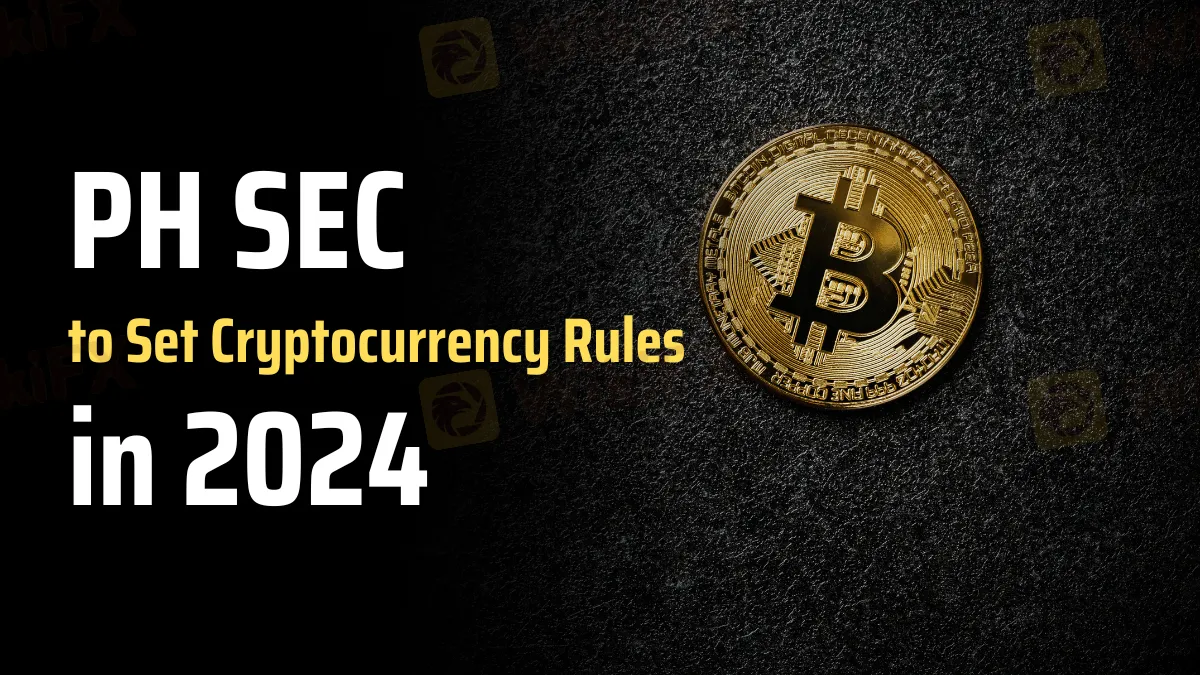简体中文
繁體中文
English
Pусский
日本語
ภาษาไทย
Tiếng Việt
Bahasa Indonesia
Español
हिन्दी
Filippiiniläinen
Français
Deutsch
Português
Türkçe
한국어
العربية
PH SEC to Set Cryptocurrency Rules in 2024
Abstract:The Philippine Securities and Exchange Commission (SEC) will introduce a cryptocurrency regulatory framework in the second half of 2024 to protect users.

The Philippine Securities and Exchange Commission (SEC) wants to build a complete cryptocurrency regulatory framework in the second half of 2024. With this effort, the SEC pledges safe and open bitcoin trading in the Philippines.
The rapidly growing sector, which has gained immense popularity with Filipinos, is anticipated to gain advantages from the forthcoming regulations by offering transparency and protection. Emilio B. Aquino, the chairman of the SEC, stressed the agency's dedication to maintaining market integrity and protecting the interests of local investors.
Following growing scrutiny of bitcoin exchanges operating in the nation, Aquino made his statement. One of the biggest cryptocurrency exchanges in the world, Binance, has had its mobile apps removed from the app stores by digital behemoths Apple and Google, as part of an increased SEC surveillance. The SEC is concerned since Binance does not hold a formal license to do business in the Philippines, which is necessary to guarantee legal compliance and consumer safety.

The SEC chairperson was hopeful that, as in the past, Apple and Google would reply swiftly to their request. The SEC's more general plan to reduce illicit cryptocurrency activity and strengthen regulatory compliance includes this proactive approach.
Aquino defended the regulator's conduct in the face of allegations of prejudice. He made it clear that the decision was not directed at Binance in particular, but rather was motivated by the necessity for regulatory control, as shown by the demise of FTX, another prominent cryptocurrency exchange. For Aquino, this episode acted as a wake-up call, highlighting the need of strict regulatory measures to avoid such disasters.
Republic Act No. 8799 guides the SEC's stance on cryptocurrency regulation by requiring all financial service providers—including cryptocurrency exchanges—to have the required licenses before starting business. A keystone of the SEC's regulatory structure, this regulation guarantees that all companies follow just and legal procedures.
Even with the legislative steps, Aquino recognized the shortcomings of them, pointing out that tech-savvy investors may still use virtual private networks (VPNs) to access uncontrolled platforms. However, he did emphasize that rather than outlawing unlicensed cryptocurrency activity, the SEC's role is to lower risks and increase investor awareness of their legal options.
To cultivate a strong and enduring cryptocurrency environment in the Philippines, the SEC will prioritize finding a harmonious blend of encouraging innovation and safeguarding investors when unveiling its cryptocurrency regulations. It is anticipated that this collection of rules will become the standard for controlling new technologies and protecting the interests of all participants in the digital era.

Disclaimer:
The views in this article only represent the author's personal views, and do not constitute investment advice on this platform. This platform does not guarantee the accuracy, completeness and timeliness of the information in the article, and will not be liable for any loss caused by the use of or reliance on the information in the article.
Read more

Anti-Scam Groups Urge Tougher Action on Fraudsters in UK
Anti-scam groups demand tougher police action on fraudsters as UK fraud rates surge 19%, targeting millions in a penalty-free crime spree exposed by a $35m scam leak.

Philippines Deports 29 Indonesians Linked to Online Scam Syndicate in Manila
Online scam groups in the Philippines trick Filipinos into gambling and love scams, from Manila to Bacolod, causing trafficking and pain as police fight back.

How Reliable Are AI Forex Trading Signals From Regulated Brokers?
Discover how reliable AI Forex trading signals are and why using a regulated broker boosts their effectiveness. Learn key factors to evaluate accuracy and enhance your trading.

Top Currency Pairs to Watch for Profit This Week - March 31, 2025
Discover the top 5 currency pairs to trade for profit this week, March 31, 2025—USD/JPY, EUR/USD, GBP/USD, AUD/USD, USD/CHF—with simple strategies and best times.
WikiFX Broker
Latest News
How Crypto Trading Transforms FX and CFD Brokerage Industry
UK would not hesitate to retaliate against US tariffs - No 10 sources
FCA Warns Against 10 Unlicensed or Clone Firms
CySEC Warns Against 14 Unlicensed Investment Websites
Top Currency Pairs to Watch for Profit This Week - March 31, 2025
Will natural disasters have an impact on the forex market?
Philippines Deports 29 Indonesians Linked to Online Scam Syndicate in Manila
Navigating the Intersection of Forex Markets, AI Technology, and Fintech
Exposed: Deceptive World of Fake Trading Gurus – Don’t Get Fooled!
AI-Powered Strategies to Improve Profits in Forex Trading
Currency Calculator







